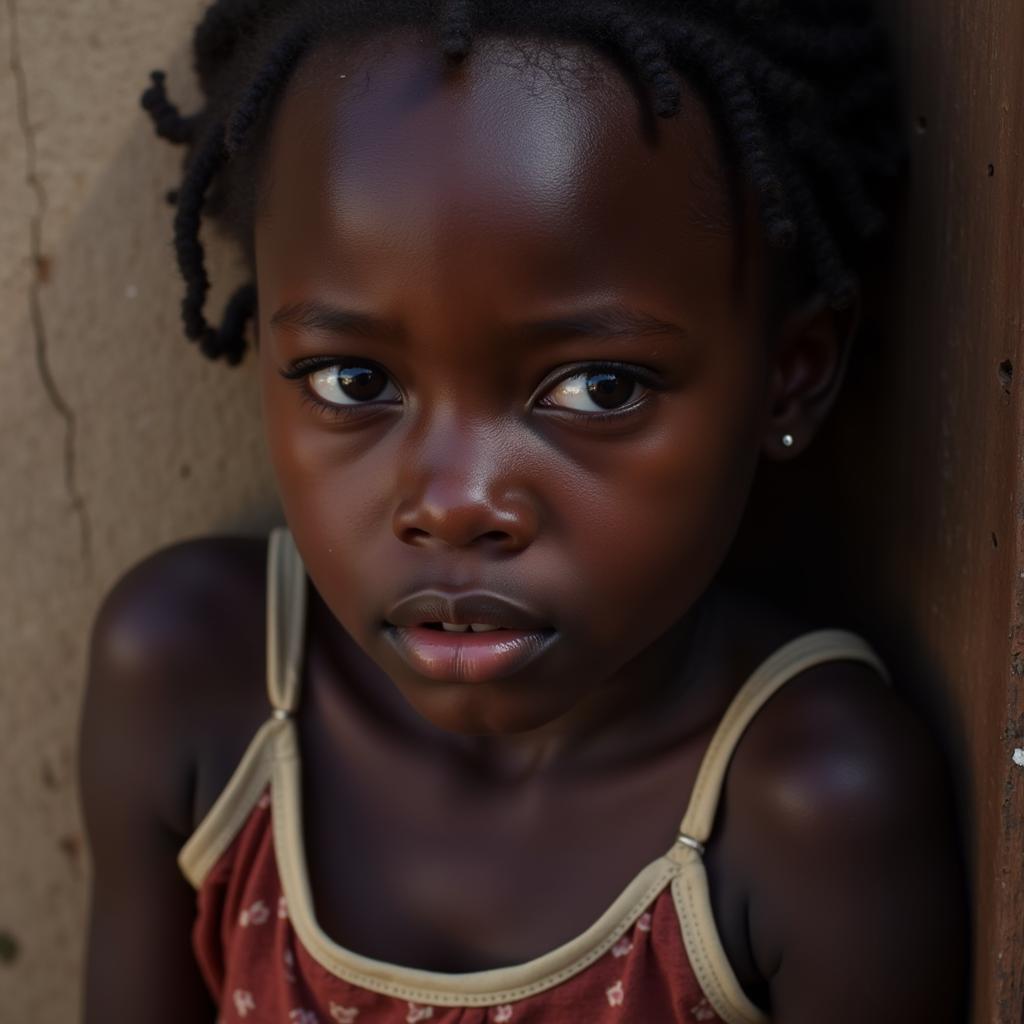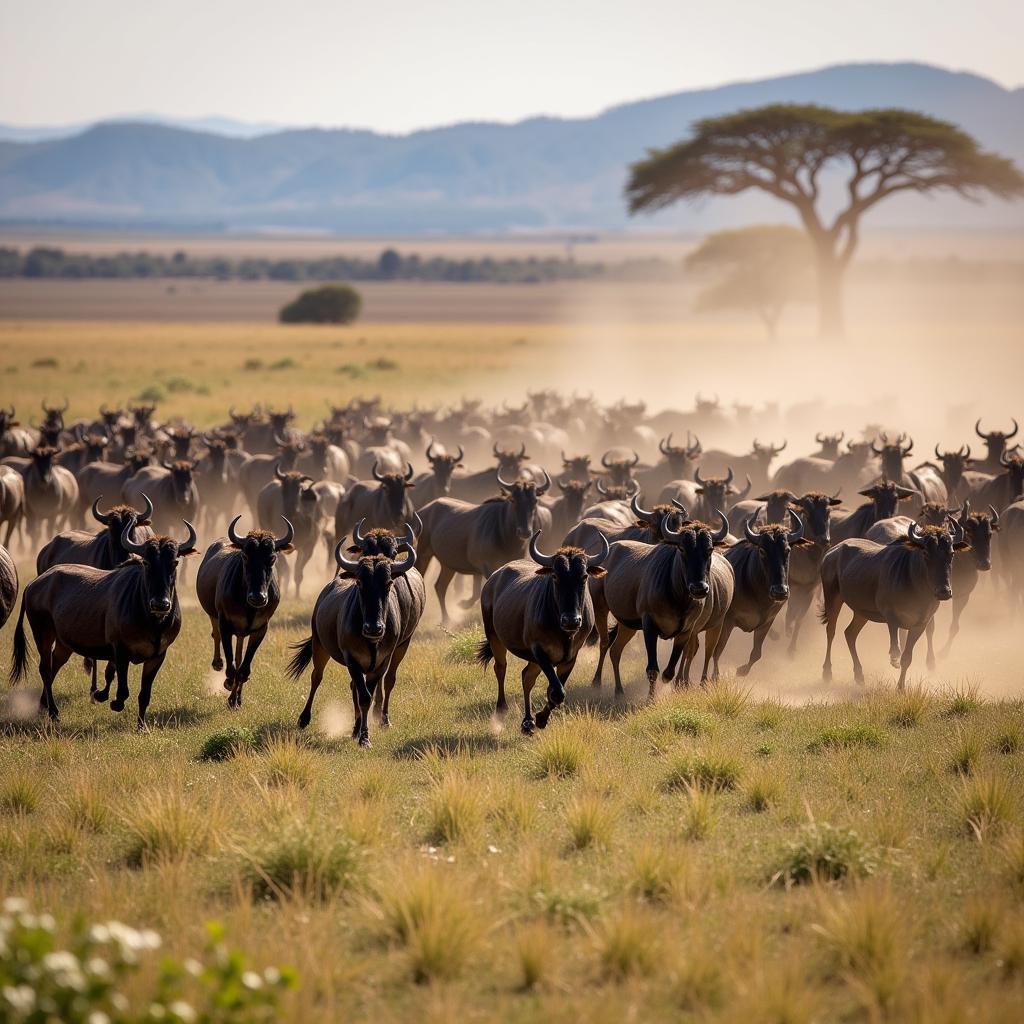A Guide to the Diverse List of African Tribes
The African continent, a tapestry woven with rich history and vibrant cultures, boasts an astounding diversity of people. One of the most fascinating aspects of this diversity is the vast List Of African Tribes, each with unique customs, languages, and traditions that have been passed down through generations. Understanding the nuances of these tribes offers a glimpse into the heart of Africa’s captivating cultural landscape.
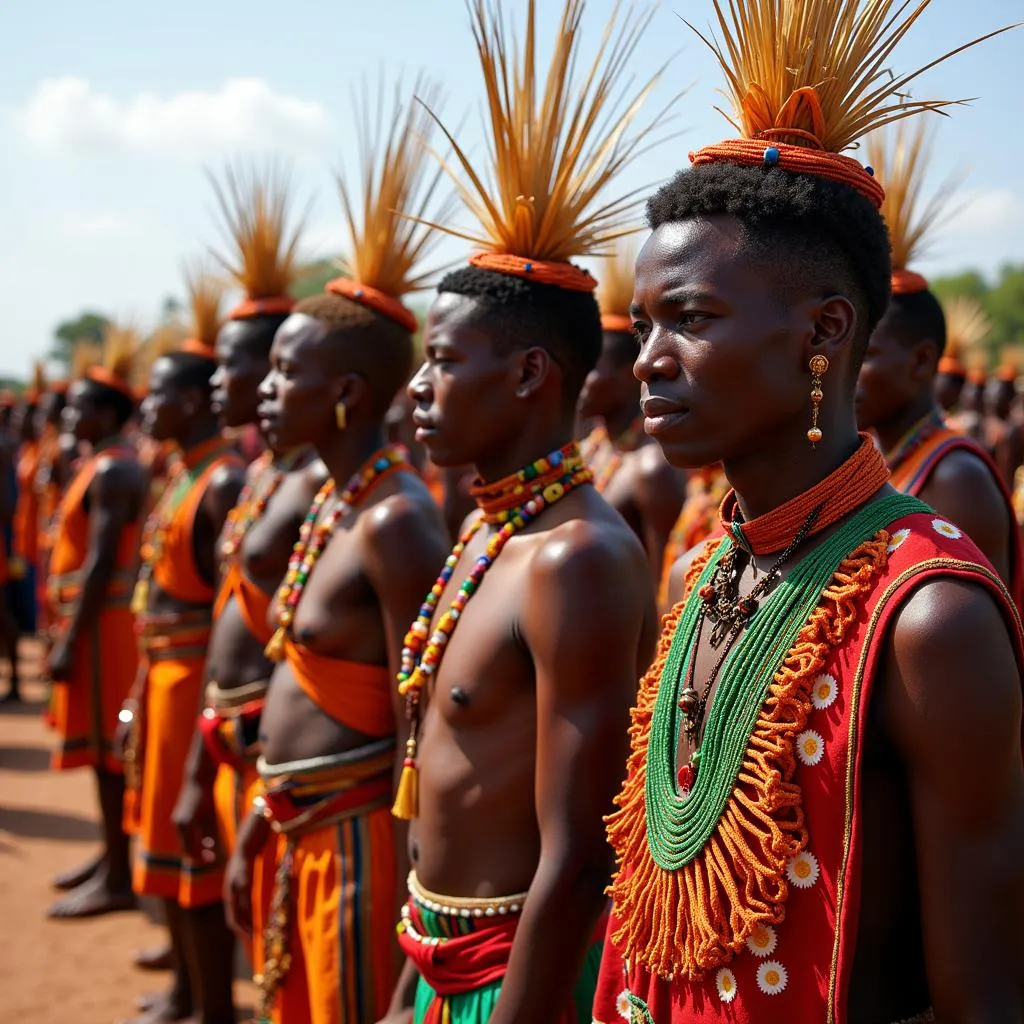 Vibrant African Tribal Ceremony
Vibrant African Tribal Ceremony
The Complexity of Defining “Tribe” in Africa
While the term “tribe” is commonly used, it’s crucial to acknowledge its complexity in the African context. The historical use of the term has, at times, been fraught with misconceptions and generalizations. It’s essential to approach discussions about African tribes with sensitivity and respect for the immense cultural diversity within the continent.
Instead of viewing “tribe” as a rigid categorization, it’s more accurate to understand it as a fluid concept reflecting shared ancestry, language, cultural practices, and often, geographical proximity. Many groups identify primarily by their ethnic group or specific community name rather than solely as a “tribe.”
Exploring the Rich Tapestry of African Tribes
It’s impossible to list every single African tribe due to their sheer number and the fluidity of cultural identities. However, exploring some of the larger and more well-known tribes provides a starting point for understanding the continent’s remarkable cultural mosaic:
1. The Yoruba (Nigeria and Benin): Known for their vibrant artistic traditions, particularly in sculpture and music, the Yoruba people have a rich history and a complex societal structure with a strong emphasis on oral traditions and spirituality.
2. The Zulu (South Africa): Recognized for their warrior history and intricate beadwork, the Zulu people have a hierarchical social structure and a strong sense of cultural identity.
3. The Maasai (Kenya and Tanzania): Famed for their distinctive red clothing and semi-nomadic lifestyle centered around cattle herding, the Maasai have maintained many of their traditional practices in the face of modernization.
4. The Himba (Namibia): Known for their unique hairstyles and traditional attire, the Himba people are a semi-nomadic pastoralist group with a strong connection to their environment and ancestral beliefs.
5. The Berber (North Africa): A diverse group spread across North Africa, the Berbers are united by their unique language and cultural practices. They have a rich history of trade and resistance against various empires.
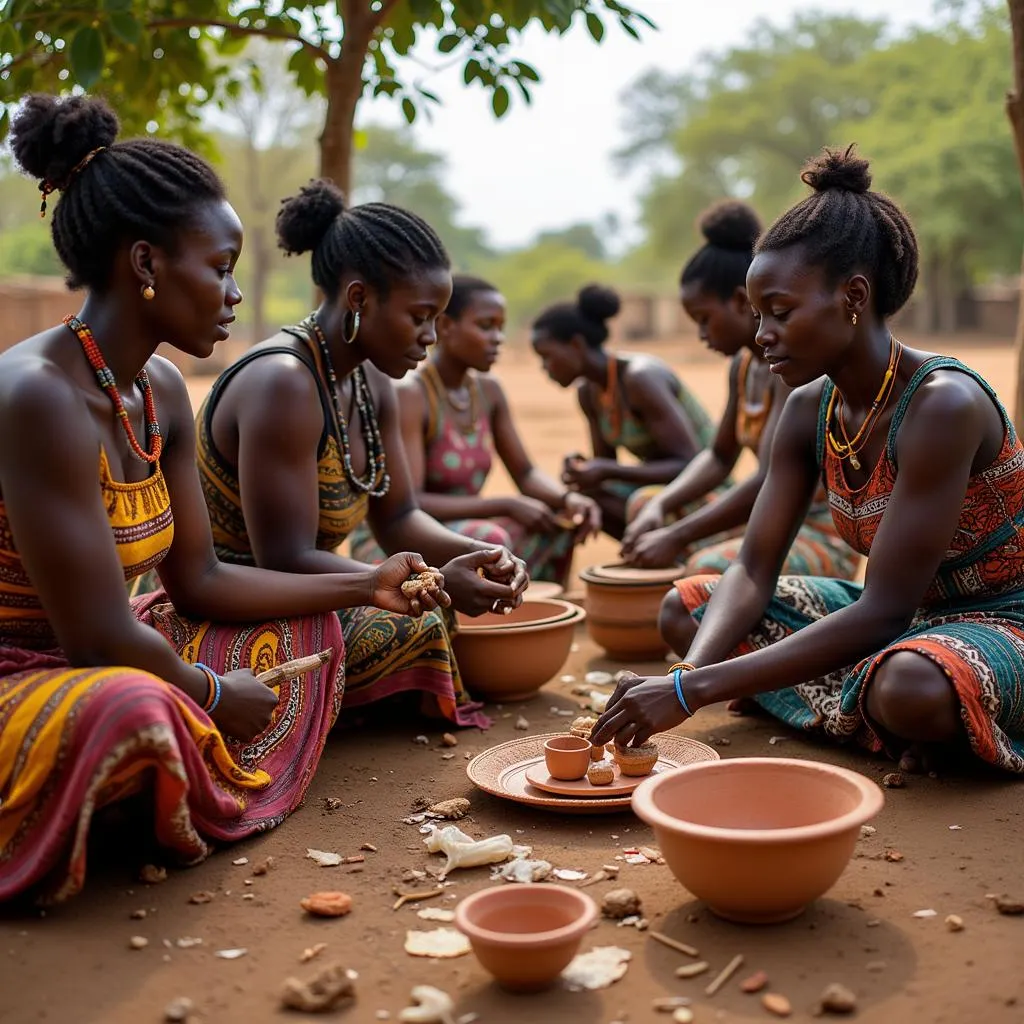 Women Creating Traditional Crafts in an African Village
Women Creating Traditional Crafts in an African Village
The Impact of Colonization and Modernization
The colonial period significantly impacted the social structures and cultural practices of many African tribes. The imposition of arbitrary borders and policies of assimilation disrupted traditional ways of life.
Despite these challenges, many African tribes have demonstrated remarkable resilience, adapting to changing circumstances while preserving core elements of their cultural heritage.
Preserving and Celebrating Cultural Heritage
In a rapidly globalizing world, preserving the unique traditions and languages of African tribes is more critical than ever. Recognizing the value of cultural diversity enriches our understanding of humanity’s shared heritage.
By learning about different African tribes, engaging with their art, music, and stories, we can foster cross-cultural understanding and appreciation for the beauty and resilience of these ancient cultures.
FAQs: Understanding African Tribal Diversity
1. Are all African tribes the same?
No, Africa’s diversity extends to its tribal groups. Each tribe possesses distinct languages, cultural practices, beliefs, and social structures.
2. How many African tribes are there?
It’s challenging to provide an exact number due to the fluid nature of tribal identities and the historical complexities surrounding the term “tribe.”
3. What are some ways to respectfully learn about African tribes?
Engage with books, documentaries, and reputable online resources created by African scholars and cultural experts. Visit museums and cultural centers dedicated to showcasing African art and history.
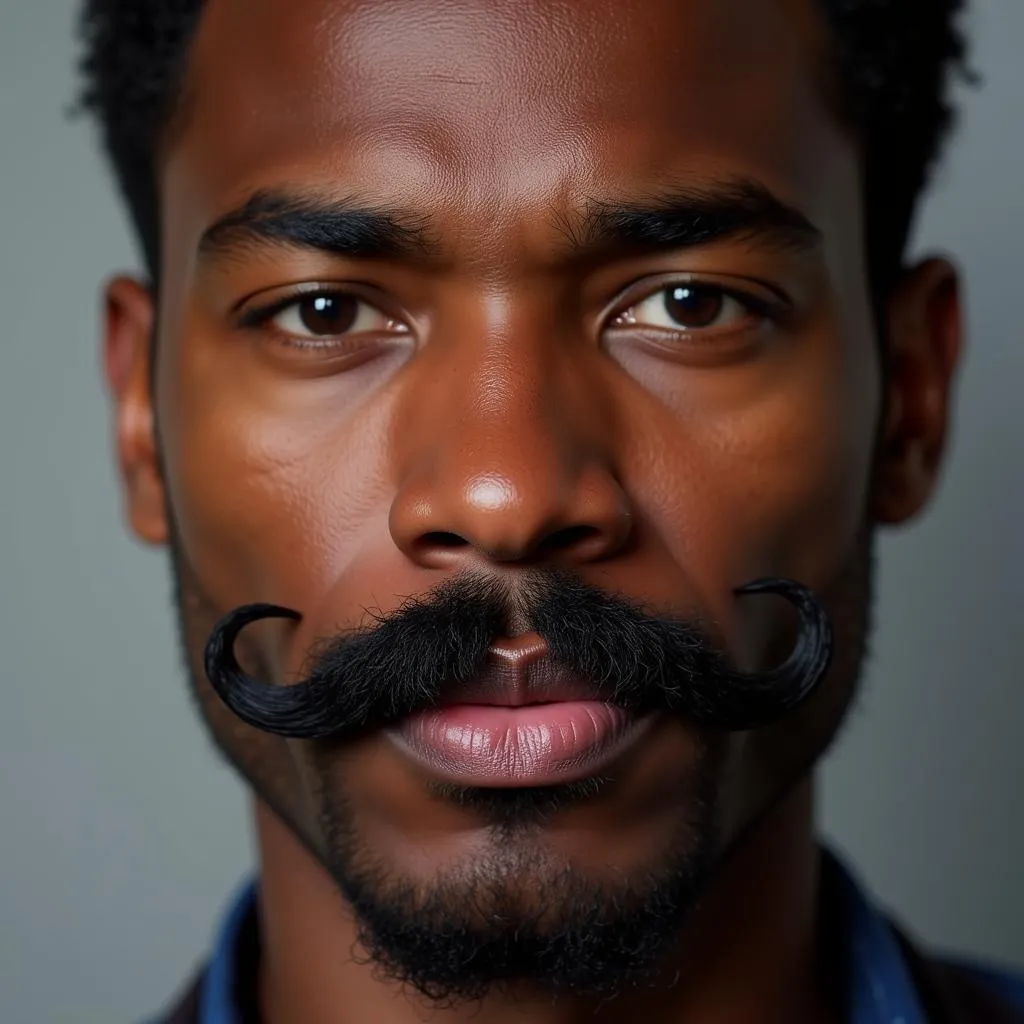 Portrait of a Man Showcasing African American Mustache Styles
Portrait of a Man Showcasing African American Mustache Styles
Exploring Further: Delving Deeper into African Cultures
Discover more about the fascinating world of African tribes and their enduring traditions.
- Learn about the powerful storytelling traditions of the African greyhound.
- Explore the history and significance of traditional African hairstyles.
Need More Information?
For inquiries and assistance regarding African culture and travel, please contact us:
Phone: +255768904061
Email: [email protected]
Address: Mbarali DC Mawindi, Kangaga, Tanzania
Our dedicated customer support team is available 24/7 to assist you.
